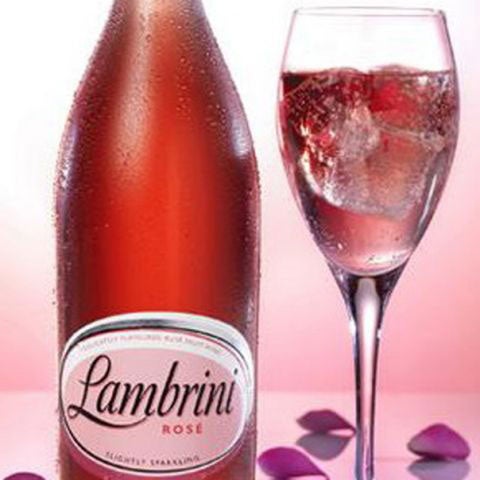Drinks industry 'seducing teenagers'
Alcohol companies accused of using questionable tactics to promote their products

A row has broken out between the alcohol industry and Britain's leading medical journal over allegations that the industry is using dubious tactics to promote its products to young people.
Internal industry documents obtained by the Commons Health Select Committee for its recent report on alcohol reveal that firms are "pushing the boundaries" of the code on alcohol advertising, according to researchers writing in the British Medical Journal (BMJ).
They say market research on 15- and 16-year-olds is used to guide the development of campaigns and that many references were made to the need to recruit new drinkers and establish their loyalty.
Lambrini, a perry aimed at young women, was described in industry papers as a "kids' drink" and the alcopop WKD was targeted at "new 18-year-olds". Carling highlighted the fact that its Carling Weekend was the "first choice for festival virgins".
Smirnoff Ice wanted "to become the most respected youth brand (overtaking Lynx deodorant)" and Lambrini's 2007 TV campaign set out to be "a cross between Myspace and High School Musical". In other documents, Carling was described as a "social glue" by its promotion team while those behind WKD noted the need to "communicate maleness and personality".
The alcohol industry spends £800m a year promoting drinking in the UK, 45 times more than the Government spends on educating people about its dangers. Promotion is restricted by a voluntary code of practice which bans advertising aimed at under-18s, encouragement of irresponsible drinking, linking drinking with social or sexual success or with masculinity or femininity.
The BMJ analysis was carried out by Professor Gerard Hastings, director of the Institute for Social Marketing at the University of Stirling, and colleagues. Professor Hastings advised the Health Select Committee, which obtained the documents in order to explore how self-regulation was working. The authors say the UK needs to tighten regulation of the alcohol industry and that an independent regulator should vet all alcohol advertisements.
"The current problems with UK alcohol promotion are reminiscent of those seen before tobacco advertising was banned, when attempts to control content and adjust targeting simply resulted in more cryptic and imaginative campaigns... History suggests that alcohol advertisers are drinking in the last-chance saloon," they write.
The alcohol industry reacted angrily. David Poley, chief executive of Portman Group, a trade group of UK alcoholic drinks producers, said: "We are proud of the regulatory system for alcohol in the UK which is admired across the world.
"Gerard Hastings trawled through thousands of pages of internal company marketing documents on behalf of the Health Committee. He failed to find any evidence of actual malpractice. He therefore resorts to slurs and innuendos. We wish Gerard Hastings would publish his criticisms in an advertisement. The ASA could then rightly ban it for being misleading."
Simon Litherland, managing director of Diageo GB, said: "This article is a gross misrepresentation of the strict internal marketing process that Diageo applies, and a distortion of the evidence we provided to the Health Select Committee as part of its inquiry. We are extremely disappointed that the confidential and commercially sensitive information shared with the Committee, in good faith, has been made available for Professor Hastings's use in pursuing his own public agenda."
The BMJ called for a clampdown on alcohol promotion and a minimum price per unit of alcohol to curb the harm caused. The editorial by Trish Groves, deputy editor of the BMJ, said: "It is time to put away the rhetoric, popular with the drinks industry, that alcohol misuse is largely an individual problem best avoided and managed through education, counselling and medical treatment."
Hard sell: Voluntary code on advertising alcohol
Young people and the next generation
Advertisements for alcohol must not appeal strongly to people under 18 or be associated with, or reflect, youth culture. No one who is, or appears to be, under 25 years old may play a significant role in any advertisements.
Drunkenness and excess
Advertising must not link alcohol with brave, tough, unruly or daring people or behaviour; nor should it encourage irresponsible, antisocial or immoderate drinking (whether in terms of style or amount).
Sociability and social success
Advertising must not link drinking to the social acceptance or success of individuals, events, or occasions. It should not imply that it can enhance an individual's popularity, confidence, mood, physical performance, personal qualities, attractiveness or sexual success.
Masculinity and femininity
Advertising must not link drinking with enhanced attractiveness, masculinity or femininity, nor with daringness, toughness, bravado, challenge, seduction, sexual activity, or sexual success.
Join our commenting forum
Join thought-provoking conversations, follow other Independent readers and see their replies
Comments